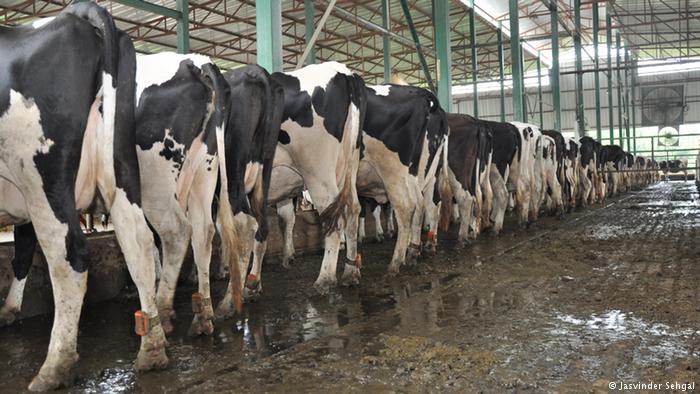Boring is exciting in the $3.8 trillion municipal bond market.
Last month’s $61.4 million oversubscribed issue from the Industrial Development Authority of Pinal County, Arizona looked like a typical tax-exempt muni.
But the bond, which is refinancing a biodigester that turns dairy cow manure and other waste into natural gas, is one of the capital markets’ first “renewable natural gas” project-finance transaction, according to Goldman Sachs, which managed the issue.
That signals that the broader category of “green distributed infrastructure,” considered essential to fighting climate change, may be able to scale rapidly with access to the lower-cost, tax-advantaged muni-bond market.
Making Nature Pay: Bankers Work to Finance Conservation at Scale
The proceeds of the 7.5% 15-year bond were loaned to the Wastewater Opportunity Fund, a $184 million fund of Equilibrium Capital, based in Portland, Oregon (Equilibrium is raising a second, $300 million wastewater fund, according to an SEC filing).
“We didn’t go to impact investors, we didn’t go for program-related investments. We went to the municipal bond market,” Equilibrium’s Dave Chen told ImpactAlpha. “We broke through into the world of a well-understood debt form called the muni bond to finance parts of our work building distributed green infrastructure.”
Chen and Goldman Sachs said extensive education was required to get investors comfortable with renewable natural gas, or RNG, along with technical terms such as anaerobic digestion and cellusic biofuel and policy jargon like “Renewable Identification Numbers” and “Low-Carbon Fuel Standards,” parts of the federal and California clean-energy credit systems.
The breakthrough into mainstream capital markets recalls the successful offering in the past year of hundreds of millions in general-obligation bonds by select community development financial institutions, likewise broadening the access of such “CDFIs” to the lower-cost capital.
Community development lenders attract new investors to low-income neighborhoods
The biodigester under construction near the town Stanfield is expected to go online early next year. The operator collects manure from the area’s dairy farms and feedlots that previously had been stored in open lagoons. The methane is scrubbed, injected into the Kinder-Morgan pipeline and sold to British Petroleum to power buses and other vehicles in Los Angeles, according to the development authority.
The avoided emissions of methane, a powerful greenhouse gas, qualify the project for federal and California fuel credits. Governments around the world are seeking to provision renewable fuels for both energy security and to combat climate change. In effect, waste products, like cow manure, become feedstock for the low-carbon energy infrastructure. Any waste that can’t be processed to pipeline-quality gas can be used as fertilizer.
Chen said the refinancing “significantly” lowered the cost of capital, despite a difficult time in the bond market generally and for green bonds in particular.
“The next one will be easier, faster and cheaper to do,” Chen said. “You can do a hundred of these, a thousand of these.”
Equilibrium Capital: The Case for Owning and Operating Sustainable Real Assets












